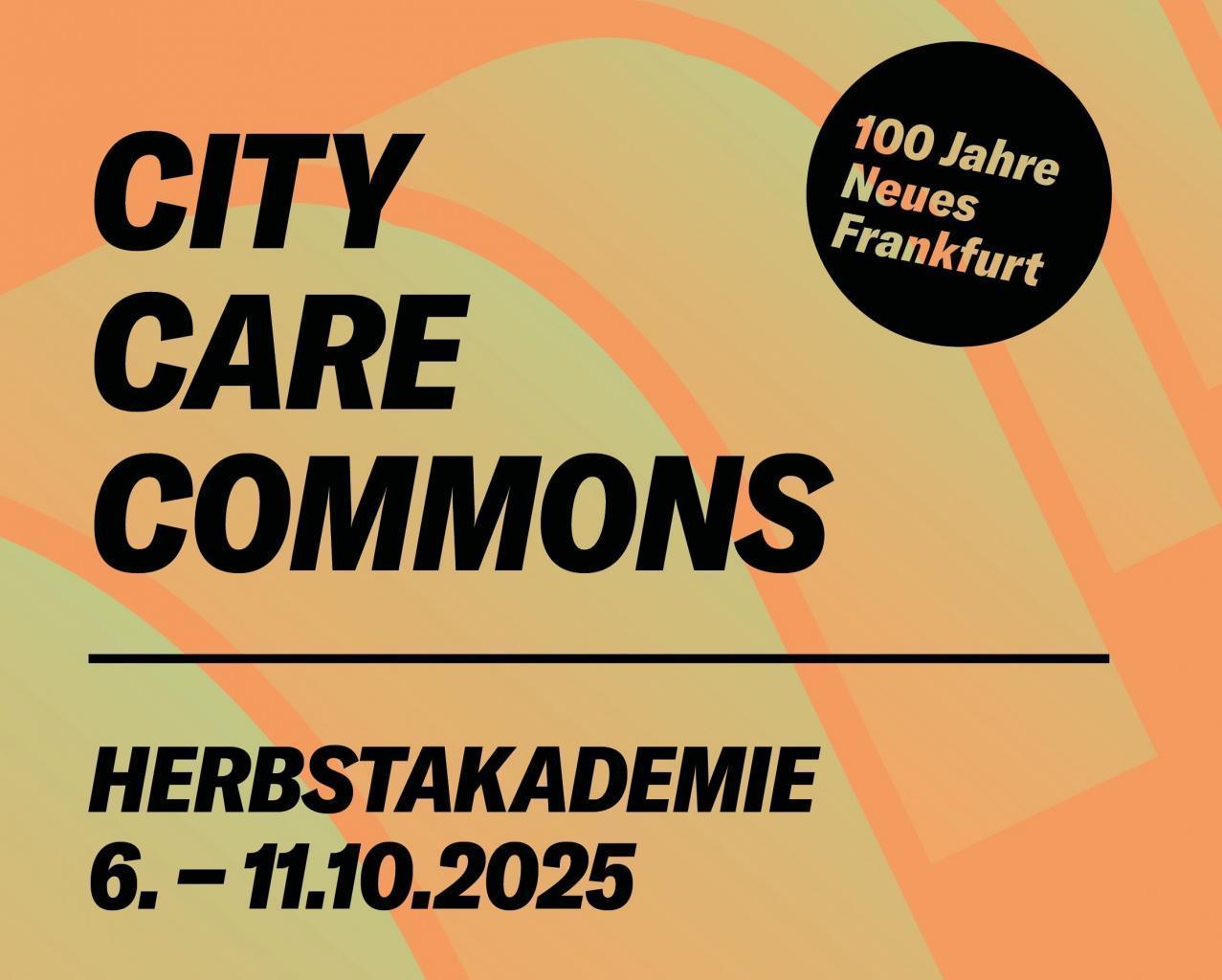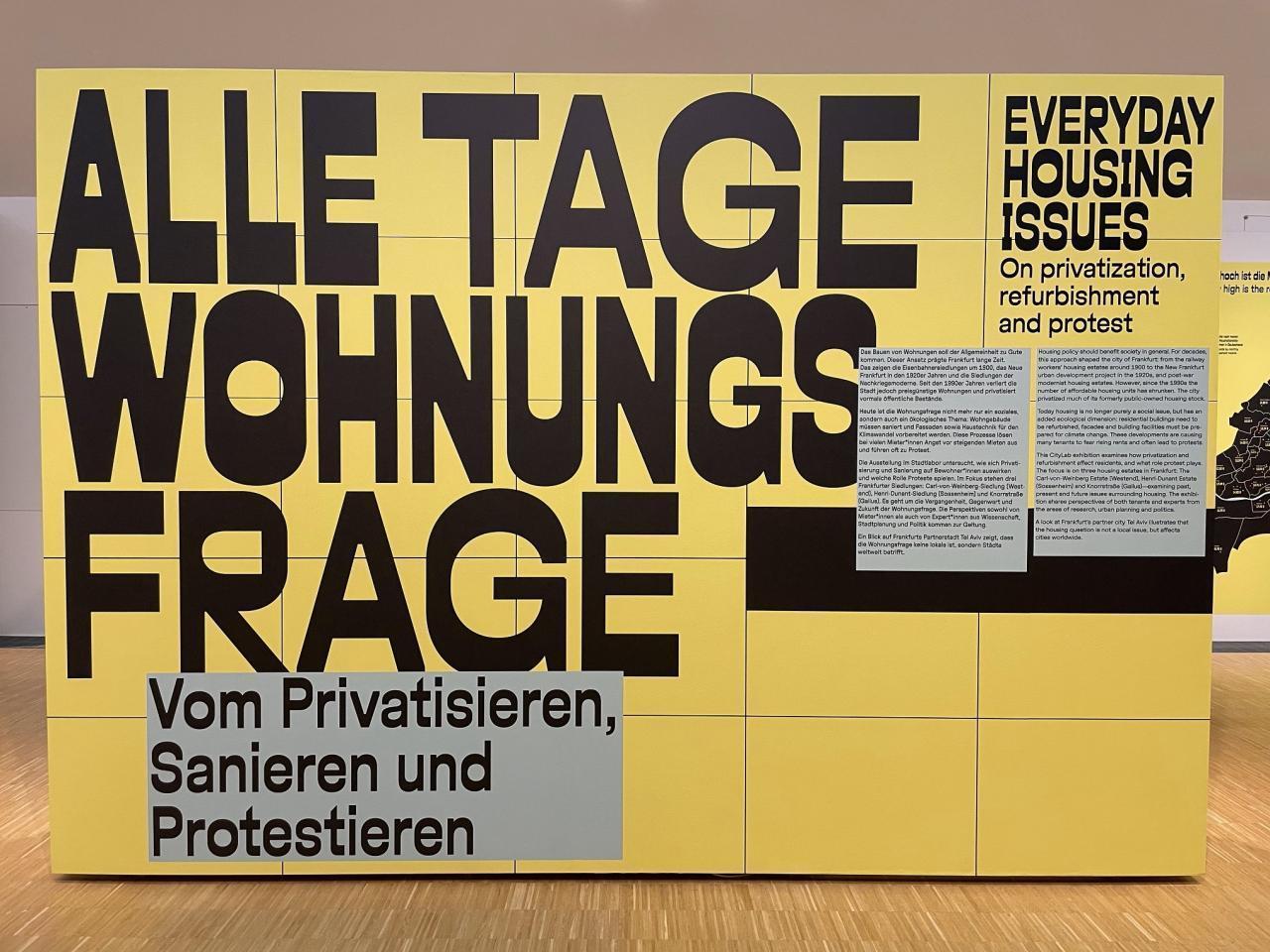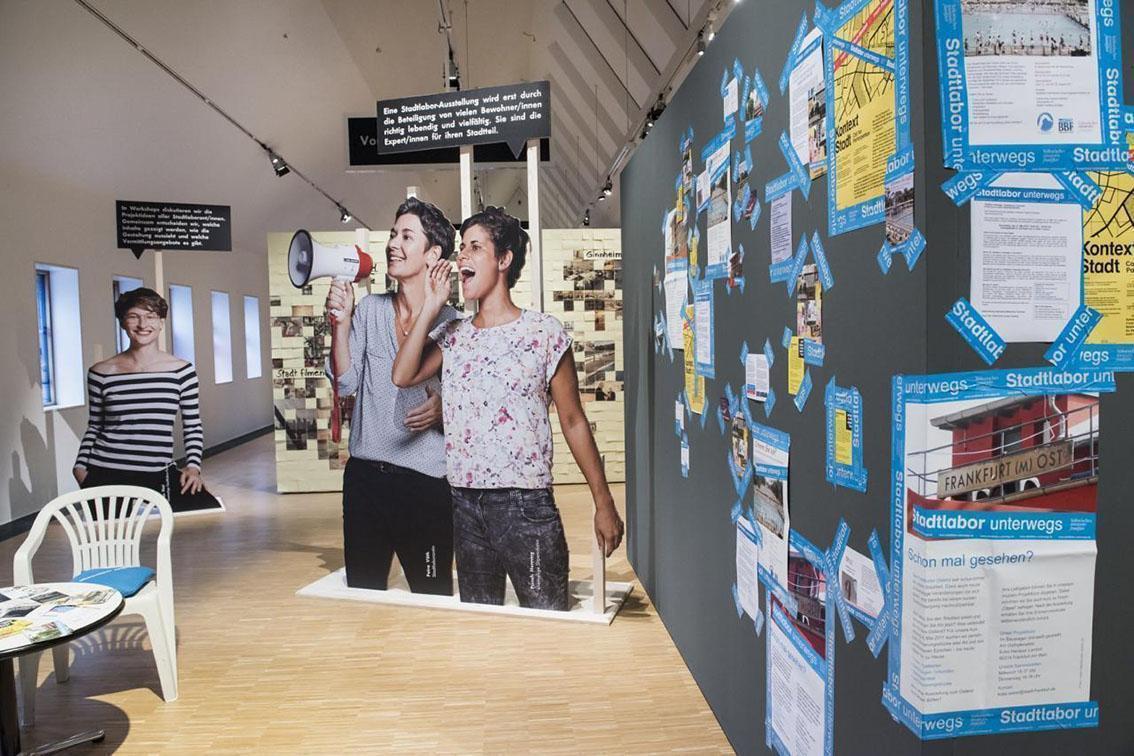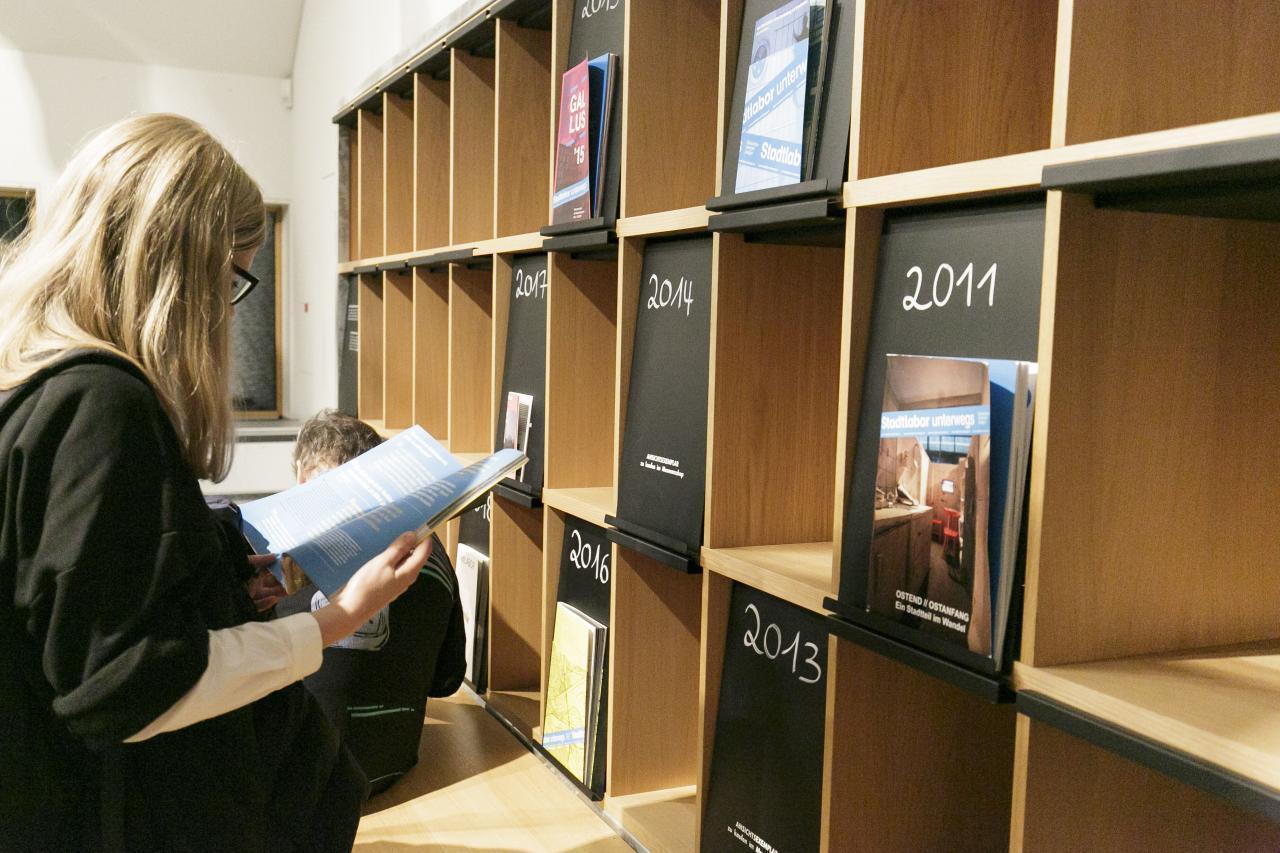Everyday housing issues. On privatisation, refurbishment and protest
Frankfurt once stood for welfare-oriented building: in 2025, the city will celebrate the centenary of the New Frankfurt and in the post-war decades, social housing estates were built by the city. However, since the abolition of municipal housing in 1989, the housing market has been characterised by a decline in municipal housing construction and privatisation. The housing crisis has been worsening for decades, the demand for affordable rental flats is increasing, while publicly subsidised housing is steadily declining. At the same time, necessary refurbishments show that the housing issue is now both social and ecological, as environmental aspects and displacement processes can no longer be treated separately.
The exhibition at the city lab focuses on the past, present and future of the housing issue. It focusses on the voices of the residents and the social consequences. What stories do they have to tell about the buildings and their struggles for the affordability and quality of their flats? What structural and architectural changes are needed to enable socially and ecologically sustainable housing? Experts from science, urban planning and politics will explain the urban policy changes of the last 40 years.
The focus will be on three housing estates in Frankfurt that exemplify the debate on this topic:
- Carl-von-Weinberg, former Miquelstrasse housing estate (1930s, New Frankfurt)
- Knorrstrasse in Gallus, former railway housing estate (1890s)
- Henry-Dunant estate in Sossenheim (1960s, post-war modernism)
The estates epitomised a new understanding of housing and living at the time. Ownership structures, architecture, forms of housing and the social demands on housing construction were rethought.
The housing crisis is not a regional problem. Privatisation processes in urban development affect many metropolises worldwide, as an excursion to Tel Aviv, Frankfurt's twin city, will show. The hopeless situation of many residents led to one of the largest political mobilisations in Israel in 2011.
Residents, academics, activists, tenants' associations, local politicians and urban planners have their say in the urban laboratory "Every day housing issues". The newly emerging, multi-perspective knowledge can be used to develop joint strategies for a social and ecological housing policy.
Contact:
Curators:
Katharina Böttger
katharina.boettger[at]stadt-frankfurt.de
069 212-49709
Angelina Schaefer
angelina.schaefer[at]stadt-frankfurt.de
Noah Nätscher
noah.naetscher[at]stadt-frankfurt.de
069 212-35961
Funding:
Kulturfonds Frankfurt RheinMain
Cooperations:
Goethe-Universität Frankfurt (Institut für Humangeografie)
Tel Aviv University
Stadt Frankfurt – 100 Jahre Neues Frankfurt
Deutsches Architekturmuseum
Museum Angewandte Kunst




